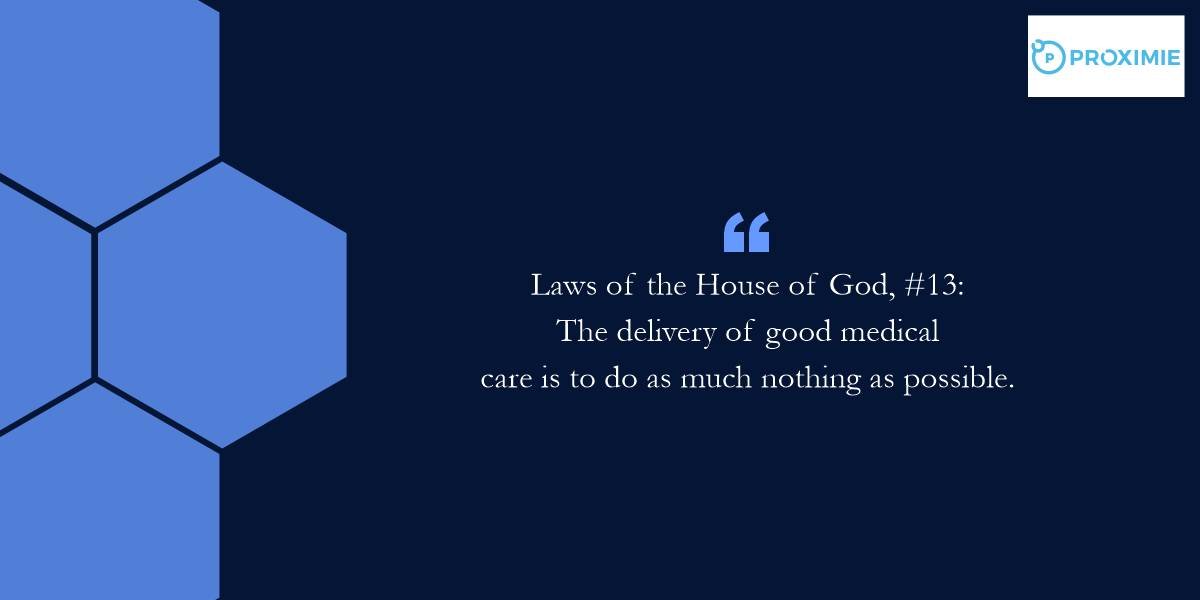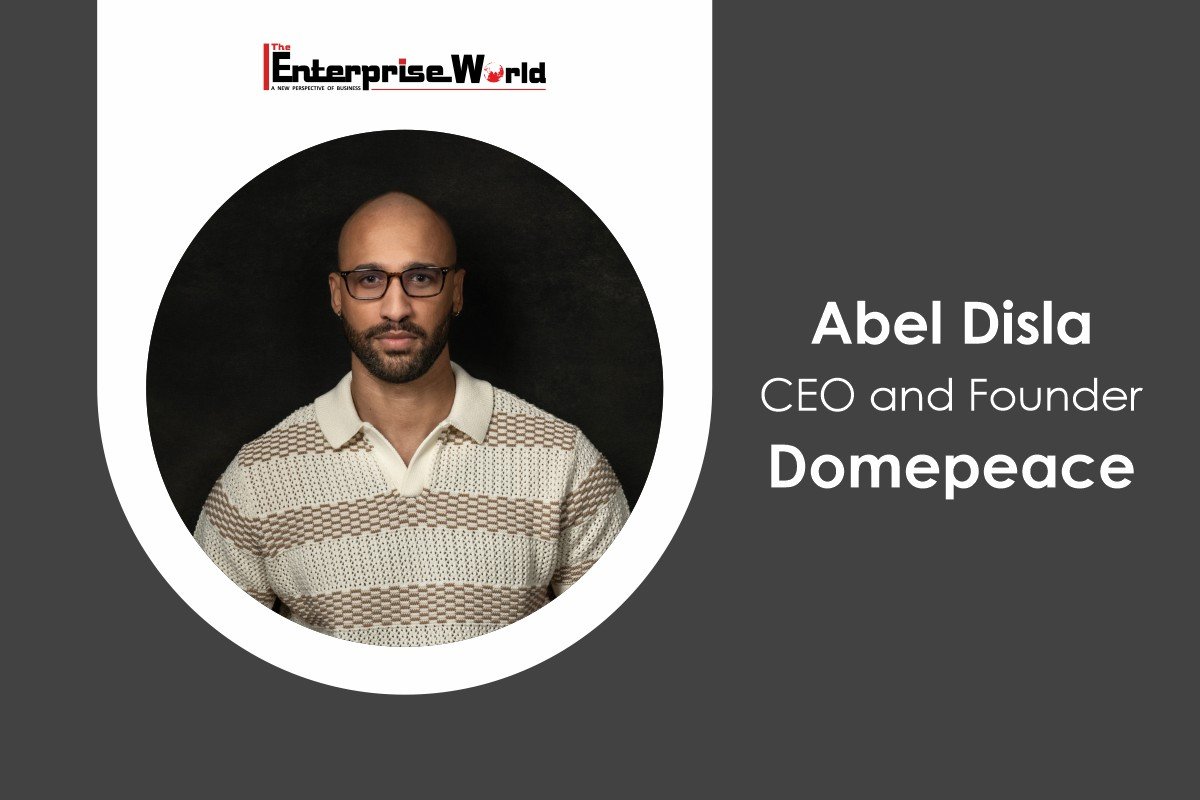Dr. Nadine Hachach-Haram FRCS (Plast), BEM, is Consultant Plastic Surgeon and Head of Clinical Innovation at Guy’s and St. Thomas’ NHS Foundation Trust, in London, England. In 2016, the NHS clinical entrepreneur drew on her surgical experiences and her passion for innovation and education to create Proximie, a software platform on a mission to save lives by sharing the world’s best clinical practice.
Proximie enables physicians and medical device experts to virtually scrub-in to any operating room or cath lab, from anywhere in the world. Designed in order to extend the geographical reach of a surgeon and to create the effect of a borderless operating room, Proximie’s ultimate ambition is to bring to life its vision of Connected Surgical Care; a global network of operating rooms interconnected by the world’s best physicians, where every incision is already informed by machine learning and every physician will be empowered with real-time diagnostics, data and analysis. The Enterprise World had the chance to interview Nadine and it follows as,
Brief us about your journey till now.
I founded Proximie based on the ethos that shared knowledge leads to accelerated learning and better patient care. Proximie was built to allow experts to virtually scrub in to operating rooms and cath labs around the world, to support, coach, and mentor each other, and to really look at the continuum of expertise throughout a surgeon’s career. I had been exposed to early-stage telecommunications platforms, but all of them were anchored to one moment in time.
One meeting, one call, one conference, but then it’s gone. The options available did not enable a continuum of sharing knowledge and expertise, and they were too passive. You can’t do remote surgery in 2D. It has to be more immersive than that. What we wanted to do with Proxmie was to create a multi-sensory experience that was a catalyst for collaboration and could digitize a surgeon’s footprint.
We wanted to extend the geographical reach of a surgeon and create the effect of a borderless operating room that could empower physicians to remotely share knowledge that would ultimately reduce variation in care and help save lives.
What were the initial challenges you faced?
I think when we first set out there was understandably some scepticism about whether or not we could match our ambition to change the paradigm of surgery. There was also concern about whether or not we could build something intuitive yet capable of supporting the type of precision that is required in an operating room. Would Proximie end up being too otherworldly or cumbersome from an integration perspective? We knew we had to build something for the here and now, as well as for the future.
It had to answer an urgent need and have the potential to both decrease costs and increase the efficiency and quality of care immediately. That was the dichotomy we had to overcome, and it was not without its challenges or its sceptics. I was also told that this problem was too big for a practicing surgeon and first-time CEO to solve. Now we are in advanced discussions to help solve the global connectivity problems in healthcare, using 5G and Space Technology amongst other interesting innovations.
How have Proximie’s graphs changed since the foundation? Can you share a few statistics?
We are now assisting procedures in over 50 countries, and we are operating in over 350 hospitals worldwide, but we know we need to keep pushing and the business is evolving every day. Since 2020, our team has grown from 25 to over 120 employees, and we recently just went through a successful Series B raise which is going to help empower more physicians and in turn help to save more lives. Our work is never done.
What is the reason behind your long-standing success?
Disruption in healthcare has many challenges, but I can say with experience that if it is really solving a problem then adoption can be swift and decisive. Proximie was born out of a need, and my ambition as a surgeon was to find a solution and scale it is using technology. Having that mission front and center of everything we do has enabled us to be really purposeful and also, really importantly, evidence-based. If we’re not enabling physicians to collaborate and help to save lives, then we’re not doing our jobs.
I think we also have a great product. Using augmented reality, healthcare practitioners can remotely interact in a procedure or assessment from start to finish, and mentor a local clinician through a live operation, in a visually and intuitive way. An internet-connected device allows them to view a live camera feed of the assessment or operation, provide verbal instructions, draw or overlay important patient scans or X-rays, and virtually reach into the clinical field to provide precise guidance.
We have been used to using digital technology to communicate and share information through voice, text, and video. Proximie enables something deeper. It allows people in remote locations to interact virtually in a way that mimics what they would experience if they were collaborating in the same room. It means one can physically show the other where to make an incision, in real-time, or use gestures to illustrate a technique, rather than just talking about it.
I think COVID-19 was also a catalyst for the rapid adoption of Proximie, and many other technologies, but what’s most exciting for us is that our platform is now being hardwired into clinical pathways all over the world, and that is only going to benefit the patient. It’s certainly not going to dissipate once the world has successfully battled COVID-19, if anything their use will become more habitual as we layer on new technologies.
What are the products/services Proximie focuses on? How are your services different from those in the market?
We designed Proximie from the outset so that it would never be a siloed product. It has now been used in every surgical specialty and can extend across the whole surgical industry, or ecosystem within a hospital. That software-first approach has enabled us to quickly layer on really exciting new technologies, and to the broadest user base possible. The key is accessibility, Proximie needs to function in a wide variety of geographical areas, social contexts, and environments, but also be malleable to innovative ideas, technologies, people, or hardware companies.
The pace of innovation tends to be quicker in software than hardware. It’s important to remember that a software-first approach means that we can continue to innovate and adapt quickly to the needs of our customers delivering value on a continual basis. This doesn’t preclude us from integrating into existing hardware in the operating room, this is no mean feat to be able to integrate with older pieces in some parts of the world and the latest machines like robots in others. We’re really, truly building something here.
The ability to record every procedure, annotate, review, and collaborate with it sets us apart – it enables our users to create libraries of the powerful video that speeds up adoption and learning by up to four times.

Is there any new addition to the list of products/services? Anything exciting you would like to share?
In our space, we know we can’t be static and we’re always looking at new and innovative ways to better serve our surgical community. One area of perpetual focus is connectivity, which is a central theme to everything we do at Proximie and it’s an incredibly exciting and innovative space. If you can solve the global connectivity issue, we know we can redress the inequities in healthcare that exist all over the world.
We know that today people die unnecessarily without access to simple surgery; in both developing and developed nations. By solving the issues that can compromise a surgery in any area of the world, such as not being able to access the right clinical skills or the right equipment, we can help to ensure that the 300 million-plus surgeries that happen each year, can be delivered in a consistent way, and in a way that helps to save lives.
Collectively, we must increase our capacity to deliver better care, quicker and further than ever before. I believe we are just starting to scratch the surface of what is achievable. We have held interesting discussions with major players from other sectors, including those in telecommunications and Space Technology, to better understand how they are innovating and accelerating the connectivity conversation. In healthcare too often things are siloed, good ideas, as much as surgical expertise. So one of our major aspirations as a business is to bring in the best thinking from other industries, to support us on our mission.
There is no question that 5G is going to play a huge role in creating better-connected healthcare systems. If fostered correctly it will ensure the best technologies and innovations are made more freely accessible to patients all over the world. 5G connectivity will also be harnessed to manage and monitor the petabytes of patient data and used to continually improve patient outcomes. This will move us towards a more preventative model of healthcare. Making even low latency a thing of the past.
In addition to 5G, we’re also thinking a little further afield. We believe Proximie is perfectly positioned to harness the powers of connectivity technologies and channel them directly into operating rooms all over the world. To empower physicians with real-time insights and data and enable them to create better patient experiences. The ingredients for better-connected healthcare systems are right in front of us. It’s incumbent on us, as one of the players in this field, to try and accelerate these conversations and to play a proactive role in finding innovative ways to democratize access to safe surgery, reduce variation in care and, ultimately, save lives.
Can you please brief us about your professional experience?
I spent 10 years working on global health initiatives around the world. During that period, I definitely found myself feeling like I simply wasn’t doing enough. You start to look back and see what impact you’ve had and how much you’ve actually been able to scale expertise or support independent delivery of care locally. When I looked at the Lancet Commission that revealed five billion people in the world lack access to safe surgery, I realized that we were only scratching the surface. That it was really about building scalable, sustainable models of support and delivery, so I started to look at technology and the idea for Proximie was born.
Is there any special experience with your clients you would like to highlight?
Moving away from the data and the steep increase in Proximie procedural numbers, one of the most tangible measures of our growth is the stories that we’re helping to facilitate. Our mission is central to everything we do, so the most tangible impact of Proximie is the lives we have helped to save. Every case is a story in itself and whilst I can’t profess to be central to every single one, I feel immense pride and a connection to the stories Proximie is helping to tell every single day. Behind every procedure is a story. It could be about the technology, the location, or the innovative way Proximie was harnessed to assist, but behind everyone are real people.
Real physicians, real patients, and real emotions. From the surgeon in Eastbourne remotely proctoring a surgery in Benin to interventional cardiologists collaborating in real-time from 3,733 miles apart (from Washington to London) to help save a patient’s life, Proximie is all about connections. A Professor of Otology/Neurology at the University of Illinois, once said the main purpose of Proximie is to bring people closer together emotionally. That really resonated with me. Behind all of the layers of technology, behind every procedure, are people.
What are values and ethos do you encourage in Proximie as well as in your personal life?
Our platform was founded on the principles of collaboration – defined as the action of working with someone to produce something – and I have always believed that collaboration is the cornerstone of driving meaningful change in our sector. It’s where the idea for Proximie came from in the first place, and that ethos is very much ingrained in Proximie culture. We also talk a lot about remembering our purpose and our mission and trying to live that every day. I think that is an incredibly powerful driver for everyone at Proximie.
According to you, what are the main factors that businesses should focus on to be relevant in the market after the COVID-19 outbreak?
Impact, evidence, and creating solutions that can be scaled to the broadest user base possible. Surgery is adapting and evolving before our eyes, and Proximie is playing a central role in its evolution. We wrote the commission on The Future of Surgery in 2018, which looked at what it is going to look like in the next 5–10–15 years, and we’re already seeing how it is becoming more connected, more data-driven, and increasingly amplified through different technologies and mechanisms that exist. The patient surgeon interface is changing so quickly and as we layer on AI into different applications, having access to real-time insights will improve patient care.
By combining the best human expertise with our software platform, we have created the beginnings of a borderless operating room, where every operation in every hospital can be recorded, analyzed, and predicted for future use. It’s incredibly exciting to think of our vision of Connected Surgical Care; a future global network of operating rooms interconnected by the world’s best clinicians, where every incision is already informed by machine learning and every clinician will be empowered with real-time diagnostics, data, and analysis.
By digitizing surgery, we can help accelerate the adoption of best practices, democratize access to the best surgical expertise for training and help to create better patient outcomes.
According to you, what needs to be done to promote woman entrepreneurship across the country?
It’s more about inclusivity for me. We all need help, mentors, and support throughout our careers and also role models that we can aspire to follow. It’s important as women we support each other but also ensure that we support those that have a common goal and a common aspiration to our own. I am a mother, surgeon, founder and CEO, and yes, we all have unconscious biases that affect our outlooks and at times actions. I want us to focus on a collective, collaborative approach to challenge the norm, strive for improvements, trailblaze, and inspire. All to leave the world in a better place.
It’s a rat race out there. How do you cope with that?
I know it’s very cliched, but I would definitely say my family is fundamental to my happiness and my health. I have three young children and my husband, all of whom are a constant source of inspiration and happiness. They keep me grounded and we have a large extended family too. Having that network in place is critical for me. It takes a lot of emotional and physical energy to drive and grow a business that’s disruptive; there are a lot of highs and a lot of lows. My family lives and breathes the journey I’m on as much as I do, and I couldn’t do this without them.






